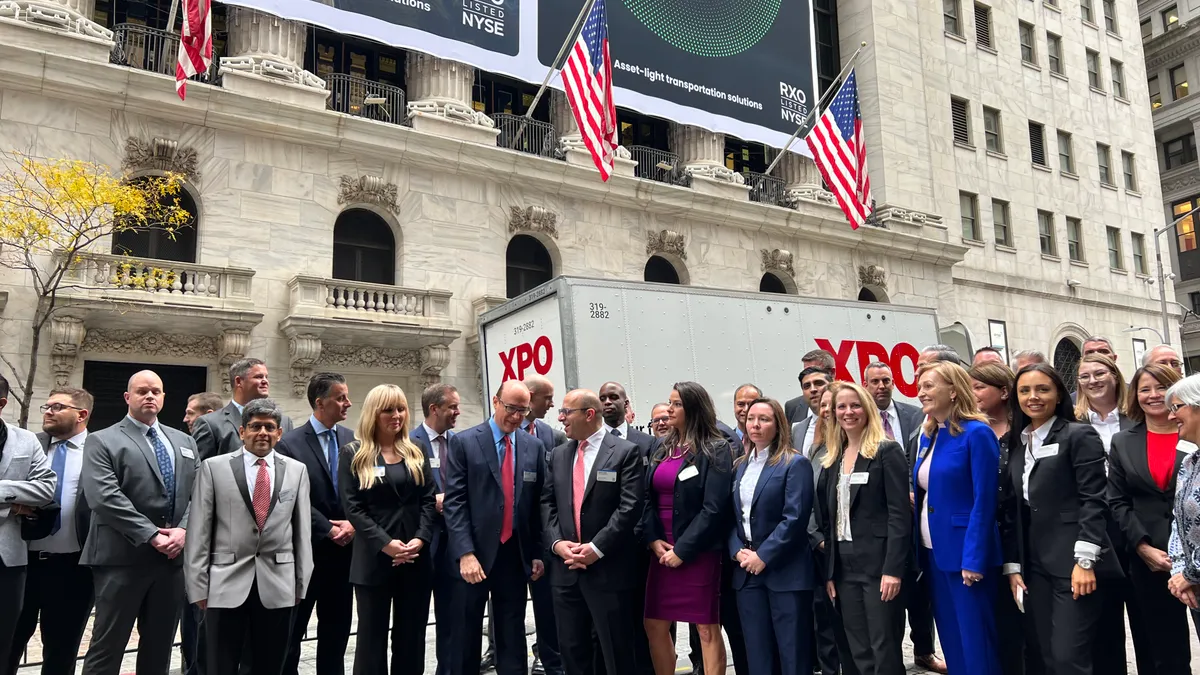Dive Brief:
- XPO Logistics will delay the divestiture of its European business due to weakened capital markets, the company said in a securities filing Friday.
- “The Company does not currently expect to divest its European business in the near term,” XPO said in the two-sentence filing. “The Company does not undertake to provide any further updates on the status of the plan, except as may be required by applicable law.”
- With its brokerage and contract warehousing businesses spun off into separate companies, the carrier is also shortening its name to XPO. It will officially drop “Logistics” from its name effective Dec. 19, according to a separate filing, as it focuses on LTL service.
Dive Insight:
This isn’t the first time XPO’s plans have been put on pause by circumstances outside its control.
The company hit the brakes on the spinoff strategy in March 2020 as the coronavirus pandemic reached the U.S. But the company later resumed the initiative, spinning off its contract warehousing business, GXO, in Aug. 2021 and its brokerage, RXO, last month.
The European business includes truckload, LTL, truck brokerage, managed transport, last mile and freight forwarding services. It hired more than 1,000 new drivers in the UK and Ireland in 2022, the company announced last month.
By retaining it, XPO will keep the final pieces of the conglomerate together, for the time being.
The company’s relentless focus on shareholder value, however, indicates it would likely sell or list the European business when it is most profitable to investors, said Satish Jindel, president of SJ Consulting.
“There’s nothing urgent about the timing — nothing sacred about it,” said Jindel, a longtime LTL observer. “If the market conditions were good, you do it. If the business is going strong, no need to rush when the timing’s not right. ... It’s smart. You want to maximize value for the shareholders.”
The effects of Russia’s war on Ukraine could be among the concerns XPO is weighing in its decision, Jindel said.
Another is likely the strength of the U.S. dollar, which has been a headwind for European business in 2022, according to a Nov. 18 J.P. Morgan investor’s note.
“For example, an investment in Europe this year would be down -17% — compared to -9% if you invested in euros and didn’t convert your investment back into dollars,” the bank said. “The same can be said for U.S.-based multinational corporations. The strong dollar shaved -4% from third-quarter revenue growth.”













